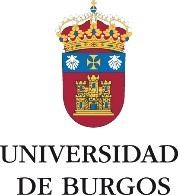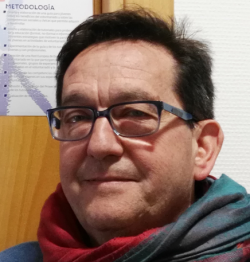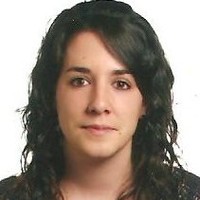Université de Burgos

L’université de Burgos (UBU) a été fondée en 1994 et joue un rôle important dans l’économie locale et régionale ainsi que dans le développement de la recherche scientifique tout en répondant aux demandes du marché (notamment des nouveaux diplômes adaptés aux besoins du marché du travail) et dans le développement de larges réseaux dans la recherche (par exemple en coopérant avec d’autres universités, le secteur privé, des institutions publiques ou des organisations de la société civile). Selon le classement de l’impact des recherches, élaboré par le CyD (Fondation sur la connaissance et le développement, 2011), l’UBU se hisse au 13ème rang parmi les universités espagnoles. De même, selon l’institut SCImago, l’université de Burgos détient un indice d’impact excellent, ce qui en fait l’université chef de file au niveau régional. Par ailleurs, l’UBU a été impliquée dans une stratégie de transfert entre entreprises et universités (2008-2013) afin d’atteindre 7 objectifs : renforcer les structures de partage des connaissances, générer et améliorer l’approvisionnement de technologies adaptées au marché, faire la promotion conjointe de la recherche et du développement, promouvoir l’exploitation des connaissances, générer et consolider les activités professionnelles basé sur la technologie, promouvoir la culture innovante et renforcer la convergence entre universités et entreprises.
Contacts
-

Mónica Ibáñez Angulo
Mónica Ibáñez Angulo, PhD in Anthropology (1999) at the University of Chicago and currently professor of Sociology at the University of Burgos. Her research focuses on the construction of social imaginaries and the ways in which these constructions affect the everyday life of a given social group. She has studied these issues from different perspectives (Basque nationalism, Bulgarian transnational migrants) maintaining, nonetheless, a strong emphasis on migration. She has been the director of several national research projects dealing with social and labour integration of transnational migrants, and has participated in the past years as a researcher in other European and national projects. She has presented her work in national (Spanish) and international conferences and has published two books and numerous articles on migration in national and international editorials (Routledge, Paradigm, Palgrave). In addition, she is a member of several international associations, such as ISA, ECPR, and IMISCOE among others and she has been peer reviewer of several academic publications. Since October 2015 to date she is also a member of the National Agency for the Evaluation of the Quality in Higher Education (ANECA) working in the Social Sciences Commission in charge of evaluating academic degrees in Spanish universities. She is the JuCiVol project coordinator.

Andrès Ameijide Arce
Andrès Ameijide Arce is doctoral student at the University of Burgos and lecturer at this university. He has a degree in Humanities and Arts (2006) and a degree in Audiovisual Communication (2010) and has completed his graduate courses in Communication and Historical Heritage. He has participated in international mobility programs including the Università degli Studi di Messina (Italy, year 2000) and Wake Forest University (United States, year 2004). At the university he lectures on the degrees of Social Education, Primary Education and Audiovisual Communication; accordingly, he is quite knowledgeable on the sociocultural issues relevant to young peoples. As regards to his dissertation topic, he is working on ‘trans’-identity related to both sexual affections and transnational mobility. In this sense, he is interested in contributing to the visibility of social exclusion in order to combat it and, hopefully, erasing it. He could greatly contribute to the present project given his broad experience in volunteering with several NGOs during his fieldwork in Madrid, such as with the Triangle Foundation, working towards the social inclusion of the collective LFGBI, and the Acoge Network, working towards the social inclusion of transnational migrants. His paper “The collective trans *: employment options and transnational relations”, has been accepted to publication at the University of Oviedo under the series Sociocultural Studies: results, experiences, reflections. He participated in Jucivol until January 2018, where he collaborated closely with the IP in the amny tasks that were needed and in all work packages. After January 2018 he decided to focus on his doctoral work and his teaching at the University; as a consequence he could no longer combine his work with Jucivol.

Rafael Calvo
Dr. Rafael Calvo is a professor at the University of Burgos and a PhD in Education. He specializes in minors in risk of social exclusion and has worked for several years as an educator in a residential centre for children’s protection. He has been a member of the Youth Platform of Burgos and a researcher in the study of young people organized by city council of Burgos in 2004. He has also organized workshops and seminars on youngsters in risk of social exclusion and has coordinated several publications on these issues. At present he directs the research group that is developing the III Youth Program of Burgos. His contribution to the Training and Mentoring experimentation sessions, as well as his contribution to organize the last two Advisory Boards have been central to the success of Jucivol in Burgos.

Soraya Cámara Azúa
Soraya Cámara Azúa works at Solidary Action and Cooperation Centre at the University of Burgos, where she manages local and international volunteering programs. She is currently doing her doctorate in citizenship education at the Universities of Burgos & Basque Country. She has a degree in Audiovisual Communication (2010) and three Master Degrees in International Relations (2011), an inter-university program from the three main universities in Barcelona; International Cooperation and Public Policy Management (2015); and Compulsory Secondary Education, Vocational Training and Language Teaching (2016). She has worked in international contexts, mainly in Central America, for CORDES (El Salvador) and for the Spanish Cultural Centre in Nicaragua (Spanish Cooperation for Development Agency). She has also done an internship program for NGO Action Against Hunger and has been a volunteer in different settings (Spain, Greece, Perú, Cuba and England): Entreculturas, Persona Solidaridad, Amnesty International, Red Cross, AEGEE, etc. Her involvement in civil society organizations comes from an early age (17) and she is still working for social justice. Her contribution and support to the European meetings in Rome and Ljubljana has been an excellent contribution to the UBU team.
Liste des sites & weblogs






